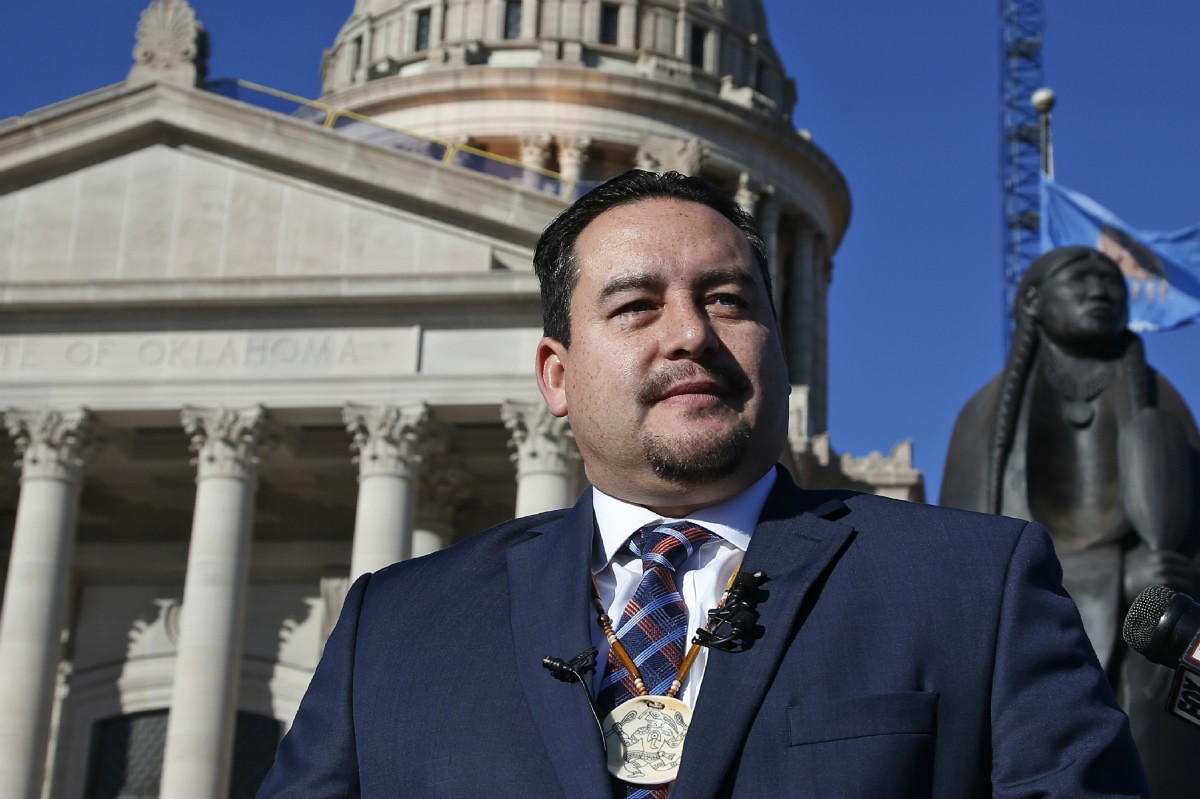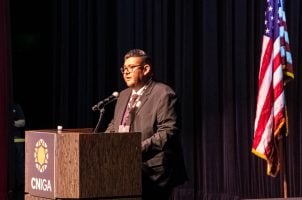Oklahoma Indian Gaming Assn. Removes Tribes That Signed Gaming Compacts with Governor
Posted on: May 9, 2020, 12:19h.
Last updated on: May 8, 2020, 04:10h.
The Oklahoma Indian Gaming Association (OIGA) has removed two member tribes after they each reached new gaming compacts last month with Governor Kevin Stitt (R).

In a statement, the OIGA says it has revoked the memberships of the Comanche Nation, based in Lawton, and the Otoe-Missouria Tribe in Red Rock for the remainder of the year. The association says the two Native American groups can seek reinstatement in 2021. Both tribes have been removed from the OIGA website.
This was a difficult decision to make, but it was the correct one,” said OIGA Chairman Matthew Morgan. “Oklahoma Indian Gaming Association works best when its membership can speak frankly and with the trust that all members are working together to support our industry as a whole.”
Stitt announced on April 15 that his administration had reached new 15-year gaming compacts with the two tribes that allow them to operate Class III gaming – slot machines and table games. The Otoe-Missouria Tribe owns five casinos, and Comanches four.
OIGA Preaches Unification
There are 35 federally recognized tribes in Oklahoma that operate some sort of gambling. Tribes are free to conduct Class I and II gaming on their sovereign reservations without state compacts, but must enter into legal binding agreements to operate slots and tables.
The mission of the OIGA is “to educate and disseminate information to the tribal, federal, and state governments and the general public on issues relating to tribal government gaming.” The OIGA consists of 23 tribes after the Comanche Nation and Otoe-Missouria Tribe were dismissed.
Stitt and the tribes are in a legal battle to determine. whether their universal gaming compacts expired January 1, 2020, after a 15-year run. The first-term governor, a Cherokee member himself, wants a bigger cut of the gaming revenue, specifically from the larger tribes – the Cherokee, Chickasaw, and Choctaw nations.
Stitt’s deal with the Comanche and Otoe-Missouria tribes actually reduced their revenue-sharing requirements. The OIGA took that as the governor’s way of trying to divide the Native Americans.
The Cherokee, Chickasaw, and Choctaw nations sued Stitt on December 31. The lawsuit, which has since been joined by 10 other Oklahoma tribes, argue their compacts renewed automatically for another 15 years. A federal judge has ordered the two sides into mediation, with a deadline for resolution set at May 31.
Suspended Tribes Respond
Comanche and Otoe-Missouria tribal leaders expressed disappointment in the OIGA decision.
“It’s unfortunate the OIGA doesn’t respect individual tribal sovereignty to negotiate new compacts,” said Comanche Nation Chairman William Nelson Sr.
Missouri Chairman John Shotton stated, “Regardless of the opinion of the OIGA, there are not hierarchies of sovereign nations in Indian Country. Each tribe has the right to negotiate the best compact available for their tribal government.”
“We still support the intentions of the other tribes to fight for the very best compact for their individual governments. I certainly hope as negotiations continue, other tribes won’t be singled out for exercising their tribal sovereignty,” Shotton concluded.
Related News Articles
Most Popular
Mirage Las Vegas Demolition to Start Next Week, Atrium a Goner
Where All the Mirage Relics Will Go
Most Commented
-
Bally’s Facing Five Months of Daily Demolition for Chicago Casino
— June 18, 2024 — 12 Comments
















No comments yet